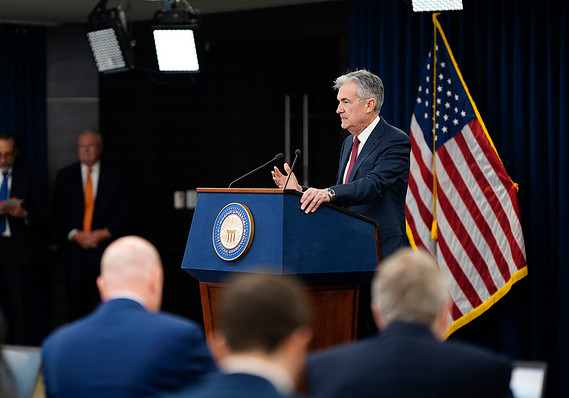
The Federal Reserve’s decision in March to cease raising interest rates this year was driven by unease over the U.S. and global economies and surprisingly subdued inflation, according to minutes of the pivotal central bank meeting.
Last month the Fed aborted previous plans to keep raising a key short-term U.S. interest. Instead, Chairman Jerome Powell reiterated the Fed would remain “patient,” with the central bank’s closely watched “dot plot” pointing to no increase in interest rates for 2019.
On the Fed’s list of worries: Sluggish U.S. growth early in the new year, a weaker global economy, the messy attempt by the U.K. to leave the European Union and festering trade tensions between the Trump administration and China.
“A majority of participants expected that the evolution of the economic outlook and risks to the outlook would likely warrant leaving the target range unchanged for the remainder of the year,” the minutes said.
What the Fed wasn’t worried about was rising inflation.
“It was noteworthy that [inflation] had not shown greater signs of firming in response to strong labor market conditions and rising nominal wage growth, as well as to the short-term upward pressure o prices arising from tariff increases,” the minutes of the March 19-20 meeting said.
“Several” Fed members even suggested inflation might not be able to meet the central bank’s longstanding 2% target.
They wondered if the bank’s periodic forecasts for the level of fed funds, known as the dot plot, was confusing investors. Powell has already said the Fed is reviewing whether it should change how it communicates its forecasts to the public.
U.S. stocks DJIA, +0.03% SPX, +0.35% rose on Wednesday after the minutes and markets closed slightly higher. The 10-year Treasury yield TMUBMUSD10Y, +0.19% slipped to 2.47%.
Balance-sheet plans
At the March meeting, the Fed also announced it would stop selling off assets in its $4 trillion portfolio of government and mortgage-related bonds by September, another move aimed at shoring up the economy and ensuring stability in the U.S. banking system.
The minutes revealed a debate inside the Fed about when the bank should resume purchases of Treasurys after it ends it balance-sheet runoff.
Several wanted to resume purchases “relatively soon,” the minutes showed, but “some” preferred to let the average level of reserves decline naturally for awhile in the hopes that it would give the Fed a sense of underlying demand by banks.
The outcome of such a debate, though arcane, is important. Some outside critics contend the Fed balance-sheet process contributed to the stock-market meltdown in December. Senior Fed officials want to make sure whatever they do reduces instability in the U.S. financial system.
Although the Fed stressed it will remain patient for now, some members would not rule out another increase in interest rates this year. They said the strong labor market would help contribute to a rebound in consumer spending and boost economic growth in the months ahead, though not as rapidly as last year.
“Most participants indicated that they did not expect the recent weakness in spending to persist beyond the first quarter,” the minutes said.
In other words, the Fed is still leaving itself wiggle room.
“Policymakers are happy that their about-turn in January helped trigger a clear improvement in financial conditions but some, at least, are concerned about the danger of being boxed-in,” said chief economist Ian Shepherdson of Pantheon Macroeconomics.
In another noteworthy part of the discussion, “several” Fed officials questioned the usefulness of an inverted yield curve in predicting recession The yield curve “inverts” when rates on short-term loans, say two years or less, exceed rates on longer-term borrowing of 10 years or more.
Parts of the yield curve inverted earlier this year, but many economists say it’s no guarantee of recession. The yield curve has usually — but not always — inverted shortly before an economic slump.




























